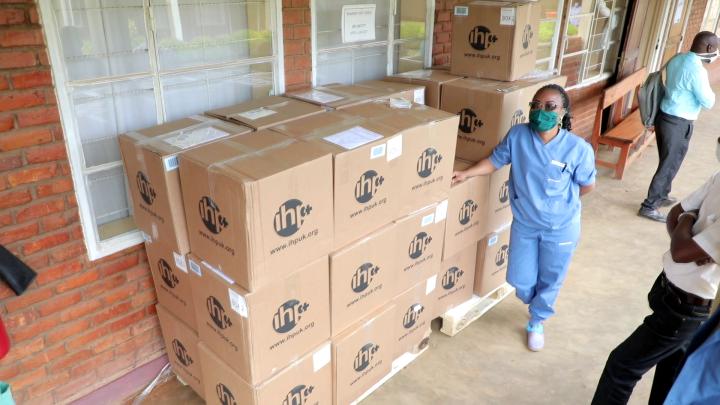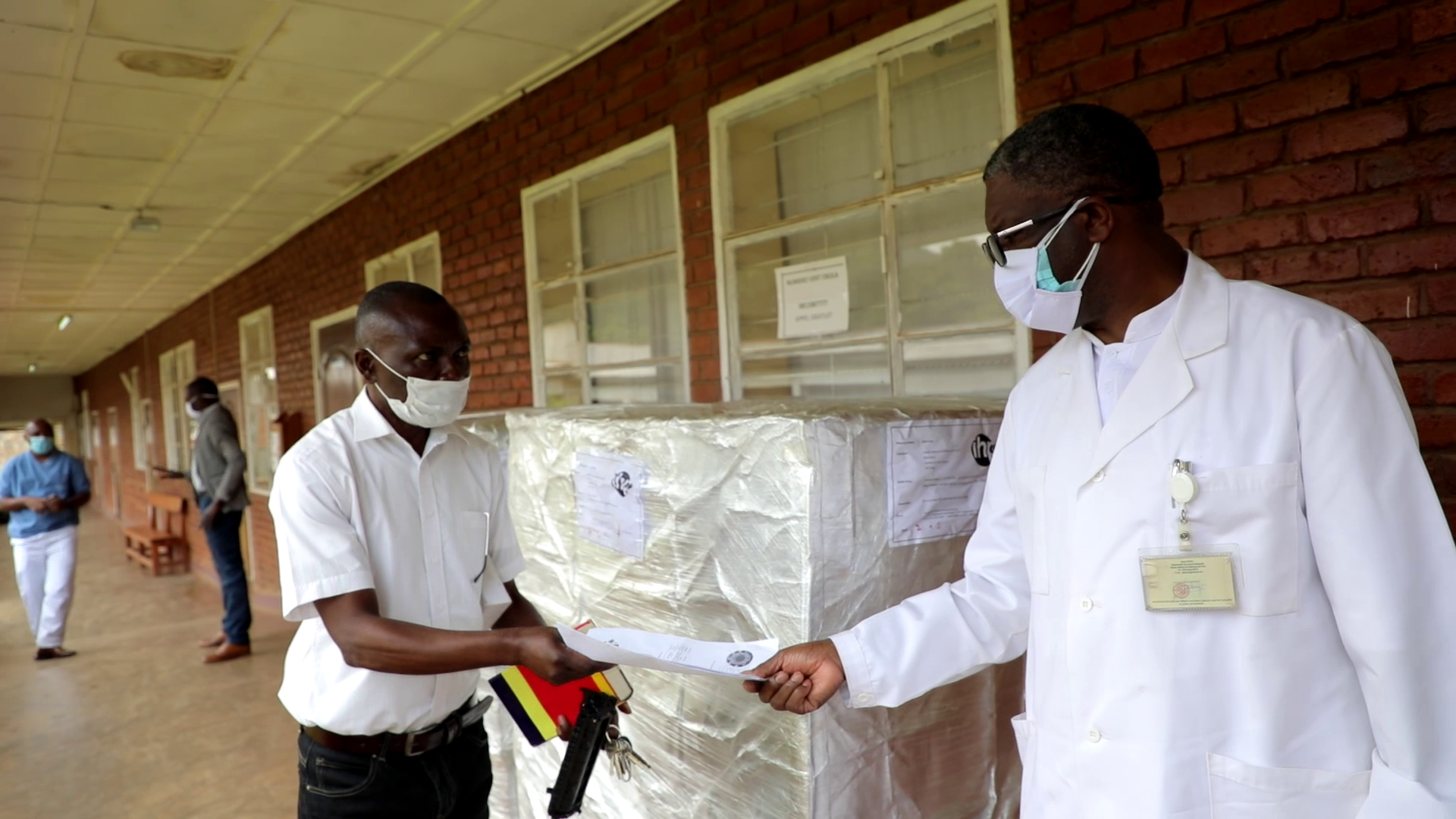Global Impact
No place is too hard to reach
From a hospital in the Congo to remote islands in Portugal, Alloga colleagues worked quickly to help ensure people would still have access to critical medications during COVID-19.


Together with International Health Partners (IHP) – a London-based charity that works with healthcare companies, nongovernmental organizations and others to match donations directly to needs – Alloga UK has been preparing essential health packs for people in need around the world during the pandemic.
Each pack contains more than 800 over-the-counter and prescription medicines – from antibiotics and painkillers to anti-inflammatories and medications for chronic conditions. Since the beginning of the pandemic in March, IHP has shipped out more than 4 million packs.
One shipment, requested in early April, reached the Democratic Republic of the Congo by the end of the month, despite transport challenges. The shipment contained 18 packs for the Panzi Hospital in Bukavu, a facility established by Nobel Peace Prize winner Dr. Denis Mukwege to help survivors of sexual violence.
Where there’s a will, there’s a way
Colleen Harrisson-Dodds, IHP’s director of logistics and systems, said Alloga UK’s flexible, can-do approach has been crucial in these operations.
“We had significant challenges getting transport for this shipment, with options limited because of COVID-19,” she says. “As flights were scarce, we could get only two pallet spaces on a charter flight from Gatwick Airport in London to Kigali, Rwanda. The shipment was on three pallets, but the Alloga team repacked it onto two pallets just before dispatch.”
Alloga also donated thermal blankets that offered protection from extreme temperatures during transit. “When cargo changes planes or is unloaded, pallets can be left on the tarmac in the hot sun,” explains Harrisson-Dodds. “The blankets made sure the medicines didn’t get too hot.”
Picked up in Rwanda, the shipment was taken across the border to Panzi Hospital, one of two facilities initially appointed by the Congolese government to treat COVID-19 patients.

Receiving a large shipment of donations has done much to lift the spirits of those at Panzi, and has enabled hospital workers to give vulnerable people the help they need at a time of great uncertainty.
“In regular times it is difficult for us get the medicines we need,” says Marissa Pledger, project manager for the hospital. “But during COVID-19, with border closures and the decrease in flights, all supplies in Eastern Congo are significantly diminished. These packs allowed us to keep our pharmacy well-stocked during this time, and hopefully for a while longer.”
Alloga UK employees are still busy getting together new health packs as the pandemic continues to impact people around the world.
An act of kindness can go a long way
Meanwhile, in Portugal, Alloga-Logifarma operations manager João Gomes and his team had to act fast to find a solution when 11 Portuguese islands were suddenly cut off from pharmaceutical supply this spring.
A typical day for Gomes involves overseeing two Portuguese distribution centers and a team that prepares and ships more than 1,600 orders of around 40,000 units of medications and healthcare supplies every day.
Early in the pandemic, virus measures quickly changed day-to-day work, with separated shifts, extra cleaning and the closure of the on-site food services. But even with challenges mounting, Gomes says his team felt a renewed sense of pride in their work.
“We felt immense responsibility right away,” he says. “It is during times like these that our job is more important than ever. The products we manage cannot afford to be missed by the people who need them.”
But in March, with just 24-hours’ notice, Gomes and his team had to react quickly to new government rules grounding all flights to 11 remote Portuguese islands.
“We already had some delayed orders due to limited flights,” he says. “These island communities are fully dependent on air transport for their pharmaceutical supplies. Getting our deliveries to them in time became the top priority.”

A team of 10 went to work to find a solution. One flight was still scheduled: a military plane that had the potential to carry the vital medicines. With the clock ticking, the team contacted their island shipping partner to arrange for the supplies to be transported. Four hours later, space had been reserved on the flight.
“When there is a lot of wind, the planes do not fly, but that is usually only a one- or two-day delay,” Gomes explains. “We are used to having only a few minutes to move a delivery onto a different flight, but we have never experienced anything that compared to this. Many people were depending on us.”
After two more hours, the Alloga deliveries had made it to the islands and were en-route to the pharmacies and hospitals waiting for them. Once they knew the plane had landed safely, Gomes’ team celebrated together, creating memories that made the hard work worth it.
Gomes attributes success to strong teamwork and a problem-solving spirit, and believes the experience allowed them to better understand the needs of the market and strengthen relationships with partners and authorities.
“In a short and intense time, we did it,” he says. “We must learn from our experiences during the pandemic to improve on these new benchmarks and secure a more successful future for Alloga-Logifarma.”